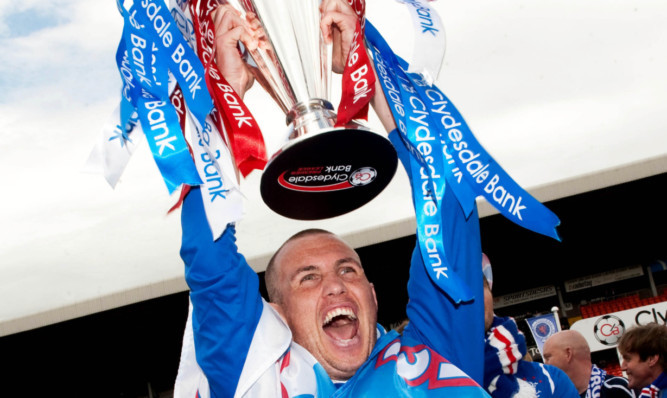Scottish football seems to be in a permanent state of civil war and lacking the leadership to negotiate a peace treaty. On every front there are battles raging.
The media are constantly accused of being too negative by supporters about the national game, but looking at the current state of play it’s difficult to find many rays of sunshine among the gloom.
Currently many fans are demanding that the new Rangers be stripped of the titles that the old Rangers won.
This comes on the back of the Court of Session verdict that the club’s use of Employee Benefit Trusts was illegal.
The scheme ensured that Rangers could sign players who, as the judgment said: ‘If the bonuses had not been paid might well have taken their services elsewhere’.
Many fans of other clubs read this as a clear statement that the Scottish game was rigged by a kind of ‘financial doping’, in the period 2001-2009 when Rangers won titles using a scheme not open to other clubs, because it was unlawful.
Now the football authorities must decide whether or not those honours were tainted and whether to remove them from the club.
In arriving at their decision they must heed the principle of sporting integrity which underpins fair competition.
This week, our biggest club, Celtic, with the financial muscle to brush aside domestic competition, lost for a second time in their Europa league group to FC Molde, a Norwegian side who play before crowds of around nine thousand.
Coming on the back of early European exits for Aberdeen, Inverness and St Johnstone, our club game seems incapable of competing at even a basic level in Europe.
Meantime the governing body, the SFA, are in the dock after yet another failure by the national side to reach a major final after Scotland’s poor showing in the European Championship qualifiers.
The SPFL who run our league set-up are at war on various fronts.
They are engaged in a scrap with the national broadcaster over the poor financial deal they feel they get from BBC, that despite the fact that they negotiated the deal themselves had the option to refuse it and the fact that there were no other interested parties.
They also regularly prostrate themselves at the feet of the live broadcasters, changing kick-off times at short notice and putting out paying fans in the process, further alienating them from the sport they both love and help to finance.
The fair allocation of revenues from broadcasting deals is also a source of friction between member clubs.
Instead of presenting a united front and working for the benefit of all of their members, they seem constantly to be carping at each other, rather than seeing the bigger picture and accepting that sometimes individual clubs must sacrifice a little for the benefit of the greater good.
Our national game is in need of both a major overhaul and visionary leadership.
If it doesn’t get it soon we will be consigned to football’s backwaters.
It seems to me that the leadership needed for that gigantic task is beyond those currently running our game.
